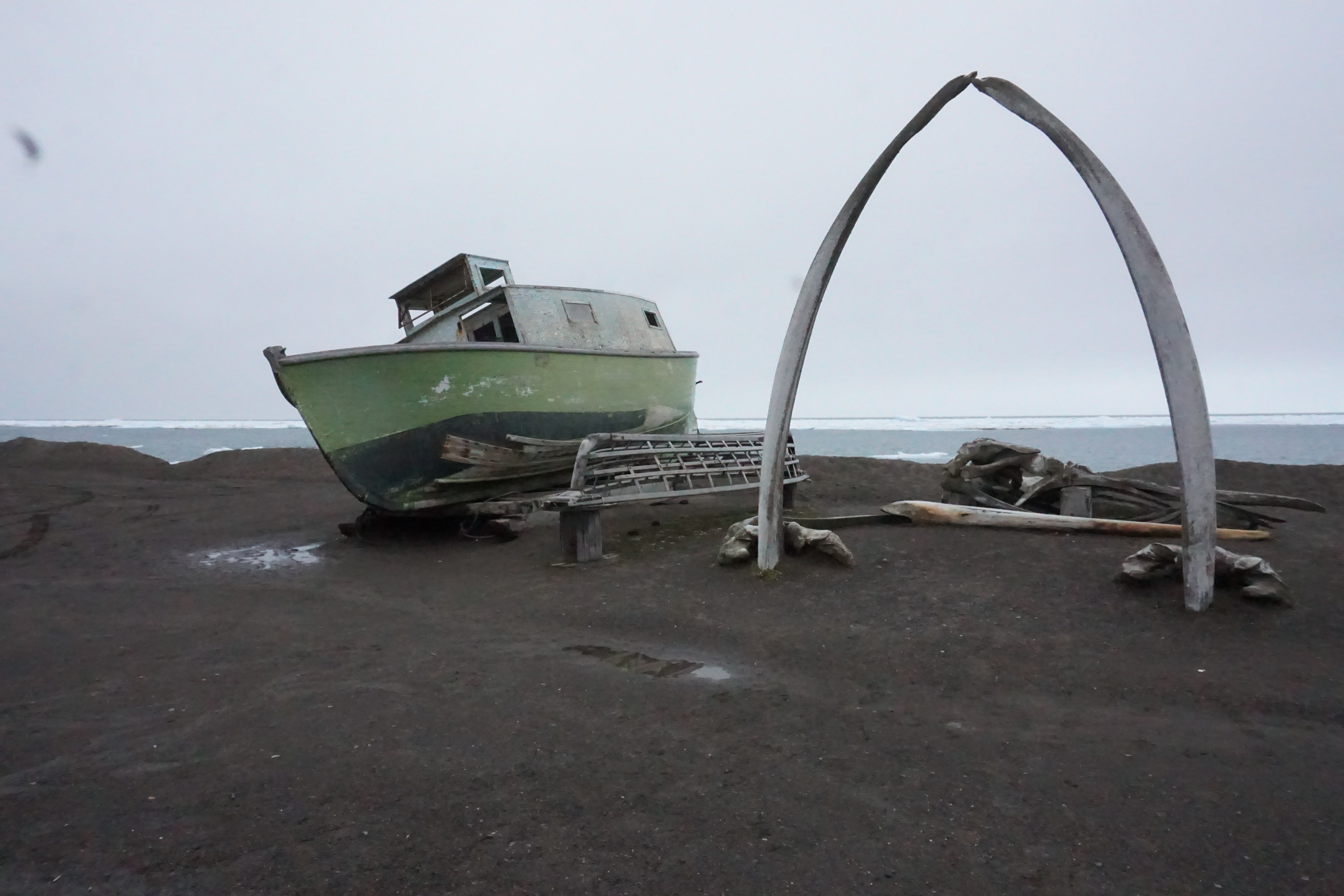Oil-rich Inupiat corporation to quit Alaska Federation of Natives
Arctic Slope Regional Corporation will leave the state's largest Indigenous organization at the end of the year.

One of the richest Alaska Native corporations has announced that it will quit the state’s largest Indigenous organization.
The Arctic Slope Regional Corporation, owned by Inupiat people of the North Slope, which spans much of Alaska’s Arctic. The Alaska Federation of Natives is an umbrella group that brings together Alaska Natives from the across the entire state to advocate for shared policy goals and preserve and promote Native cultures.
ASRC announced on Dec. 13 that is leaving AFN at the end of the year. The board decision was unanimous, ASRC said in a statement.
“With this decision, ASRC intends to focus on the various needs within Alaska’s North Slope, where there is an increased degree of alignment as well as additional efficiencies related to shared geography and other interests. ASRC had been discussing this decision with in-region delegates and member organizations for more than a year.”
The corporation declined further comment, and a spokesman for AFN did not return a call or email seeking comment.
The announcement comes two months after the AFN, at its annual convention in Fairbanks, passed a hotly debated resolution declaring a climate emergency and calling for the reinstatement of a climate action task force to address the problem. Former Gov. Bill Walker appointed such a task force, but it was dissolved by his successor, current Gov. Mike Dunleavy; the resolution calls for a new task force to be Native-led.
The resolution was promoted by AFN’s Youth and Elders Conference, a group that meets just prior to the federation’s full convention. It was opposed by officials from ASRC, which is heavily invested in oil development.
Crawford Patkotak, ASRC’s chairman, argued against it during a debate that lasted more than an hour.
“Environmental groups, animal rights groups, these are the same organizations that come into our communities and try to split us all apart, split all the corporations, the tribes, the governments because they have an agenda,” Patkotak said during that Oct. 19 debate. And if they had their agenda we wouldn’t be able to hunt today. If they had their agenda, we wouldn’t be able to develop the oil we have in the ground. That would cripple us economically.”
The youths advocating for the resolution said they want a future beyond oil.
Quannah Potts, one of the resolution’s authors, broke down into tears defending the ultimately approved resolution. “We are not here to fight with our own people. We are here to stand together. This is a serious issue. I’m worried about our future generations,” the teenager, who is of Gwich’in descent, said in the convention’s debate. “We’re crying up here. We should not have to cry to you guys. We should not have to come to you worrying about our future generations, our children and grandchildren.”
ASRC holds mineral rights in nearly 5 million acres on the oil-rich North Slope. Those areas include lands along and near the Colville River Delta, an area that has become a hotbed of new exploration and development. ConocoPhillips’ CD-5 field, which started production in 2015, is on lands with ASRC-owned mineral rights.
ASRC also owns subsurface rights to about 92,000 acres within the coastal plain of the Arctic National Wildlife Refuge, an area the corporation has been fighting for decades to open to oil development. The Trump administration is planning to hold a lease sale in the area next year, a move welcomed by the corporation.
“We look forward to a successful lease sale and strongly believe exploration and production can incorporate cultural and environmental protections while providing for the nation’s energy security. This economic driver will provide opportunities for our people and our region, as well as the rest of the state and nation for years to come,” ASRC said in a statement issued on Sept. 13, after the U.S. Bureau of Land Management issued its final environmental impact statement proposing an aggressive leasing plan across the coastal plain.
Patkotak is also helping to lead an organization called OneAlaska that is campaigning against a ballot initiative that would end the state’s system of tax credits for oil companies.